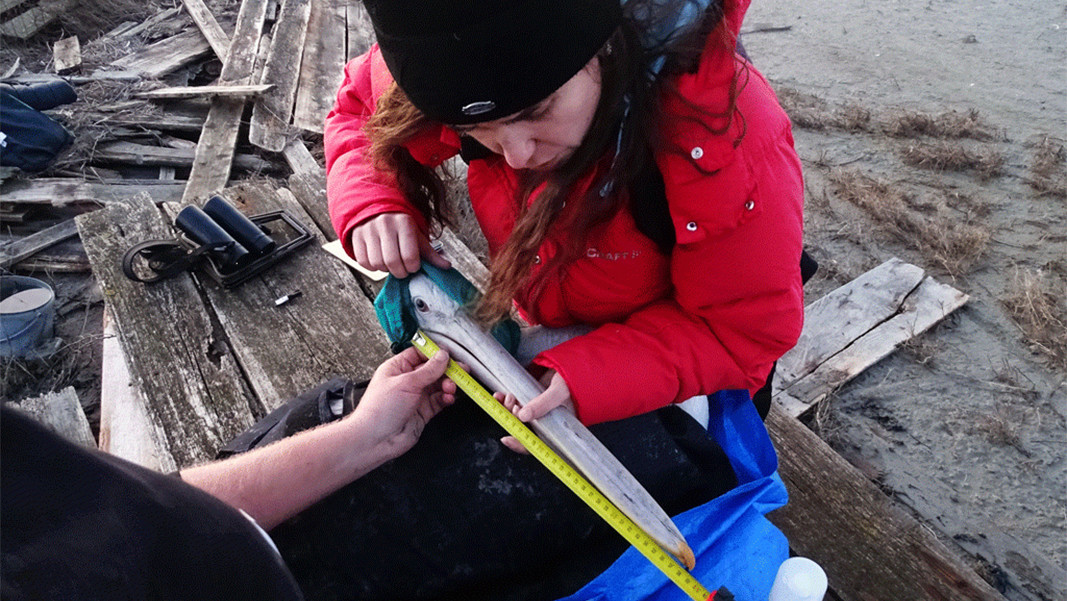At the end of February, a team of the Bulgarian Society for the Protection of Birds (BSPB) successfully installed for the first time a satellite transmitter on a Dalmatian Pelican in the area of Atanasovsko Lake near Bulgaria’s Burgas. The transmitter weighs 33 grams and is placed on a section of the bird's wing so as not to create inconvenience when the bird is flying and swimming. The BSPB team also marked the pelican with coloured rings, as before that the bird was examined and measured.
The catching and marking of adult pelicans is done for the first time in Bulgaria and marks a great progress in the study of this rare species. Through ring data and satellite telemetry, scientists will learn in detail about the habitat and threats to this species of pelicans.

The study of the species by satellite telemetry is carried out within the framework of the international project "Conservation of the Dalmatian Pelican on the Black Sea-Mediterranean migration route", funded by the EU LIFE programme. In addition to BSPB, the project partners are Persina Nature Park, the Romanian Ornithological Society, the Greek Ornithological Society, Rewilding - Ukraine and Rewilding - Danube Delta.
The data from the transmitter will soon be uploaded on the project website and it will be possible to monitor the bird's movements in real time.
Bulgaria and China have agreed to further strengthen their cooperation in the field of science, technology and innovation at a high level, as well as in academic exchange. This happened during the Eighteenth Session of the Commission for Scientific and..
The Bulgarian team is returning home with four medals from the Youth International Olympiad on Astronomy and Astrophysics (IOAA) , held in the Romanian city of Piatra Neamț, the Ministry of Education and Science announced. The competition brought..
The Association of Bulgarian Schools in America invites children from the Bulgarian community in North America to participate in a competition dedicated to November 1 - National Awakeners' Day, the organization announced on its..
On November 8 in Hall 11 of the National Palace of Culture, Bulgaria’s best masters and artisans will be awarded for the third time. The founder and..
Fertility Europe , the pan-European organization that represents patient associations focused on infertility issues, has announced the start of the 9..
Today, in the Radio Bulgaria studio, we welcomed Helmut Matt – a writer, radio journalist and poet, who has maintained a special connection with Bulgaria..

+359 2 9336 661
